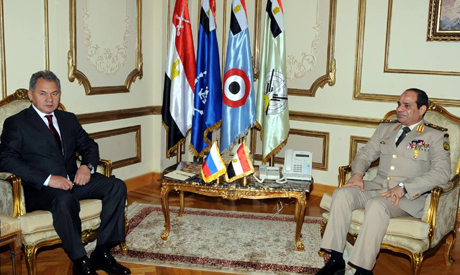by Majid Rafizadeh

The Obama administration has been so anxious and eager to strike a nuclear deal with Iran— regardless of whether that nuclear deal be detrimental, flimsy, or one-sided— and President Barack Obama has been so fearful of taking other actions or alternatives, that the theocratic and Islamist state of Iran has been mocking the US, playing a game with the American administration by tossing it around in international talks and enjoying how it will soon gets its second deal of the century by announcing itself as “The Islamist Nuclear-Armed State.”
The mismanaged and misinformed foreign policies of the Jimmy Carter administration significantly contributed to the first Iranian deal in 1979, the deal that would change the 20th century for the nation and for the Islamists, Ayatollah, and Mullahs in the Islamic Republic of Iran. When the Shah— an American ally— was deposed, Carter constantly tried to view the ruling Islamist cleric and Ayatollah Khomeini as a rational and constructive force in government. The soft talks and the weak position that the Carter administration took were a blessing for the Mullahs, who were capable of creating their own Shiite, Islamic, Muhammadian-style state, recreating a 1400-year-old Shiite Shari’a law-based political and social order.
The next deal of the century, the 21st century reward, is going to be given to Iran by the Obama administration. Although the first deal assisted Iran in becoming an independent sovereign state, along with implementing their Islamic laws, increasing their influence in the world, and funding terrorist groups with oil revenues from illegal sales on the black market, the second deal is much more pivotal, substantial, and vital.
This Iranian deal will provide the required platform that the Mullah and Ayatollah need to make a weapons-grade nuclear breakthrough in roughly the next few months. According to nuclear experts, the longest period it could take to reach capability will be six months. Meaning during the Obama administration, we will see the Ayatollah Ali Khamenei, the Supreme Leader of Iran, announce that Iran is armed with nuclear weapons. By that point, nothing can be reverted back. Through this, the Islamist state of Iran would be mocking the international community, efforts of the International Atomic Energy Agency, p5+1, etc.
The recent breakdown in the talks revealed that it was the Obama administration’s nuclear team that was armed with packages of deals for the Rouhani nuclear team. As the Obama administration “desperately” looked to make any kind of nuclear deal with the Islamist Iranian leaders, the Iranian leaders proceeded to refuse each of the deals, showing superiority and looking down on the US. The Iranians refused every deal that Secretary of State John Kerry provided.
The reason that I put the word “desperately” in quotation marks is to emphasize that Obama administration has been so frightened to take alternative actions, that it is damaging the American image by almost pleading with, and begging, the Iranian leaders to just sign any deal.
Iranian leaders, including the Supreme Leader Khamenei, President Rouhani and Foreign Minister Javad Zarif, have masterfully and shrewdly captured the desperate situation that the Obama administration is in, taking advantage of the weak position of the American government and playing games with the US while waiting for next talks, next talks, and next talks.
The intriguing thing is that the desperate status of the Obama administration has made the Iranian Mullahs, Ayatollahs, and Leaders, so much bolder that they believe they are entitled to their explicit terms. It was the Iranian leaders who have been walking out of the talk because they did not approve the presented deals. The Iranian deal has been made clear to be one that would allow for the enrichment of uranium, processing of plutonium, and for the West to remove economic sanctions on the Mullahs. The Iranians want to have their cake and eat it too, to be offered a deal that they fully agree with, without compromise.
Iran, according to experts on nuclear enrichment, only needs less than a year (roughly 6 months) to achieve their ambition. The country currently possesses near 440 pounds of highly enriched uranium at 20 percent. In order to create a nuclear warhead, nearly 550 pounds of the highly enriched uranium is needed. Secondly, Iran has initiated a reactor to process plutonium. There is no incentive— such as for civilians or for fuel— in processing plutonium other than really developing nuclear weapons-grade material. There are two methods to creating nuclear weapons-grade material, either by enriching uranium at a high percentage or by processing plutonium. The crucial issue is that as this reactor operates, it will be hard to even military damage the installation due to the dangerous material that will be released into the environment, and the danger this material poses to human beings. According to experts, processing plutonium requires approximately a year to turn to a nuclear breakaway capacity.
The major issue comes down to why the Obama administration is so frightened of the prospect of not making a deal with Iran. A crucial reason is that the Obama administration does not want to take action through finding alternatives that would call for the United States to take a true stance. The alternative would be to stop the Mullahs from mocking the international community, taking tough measures. However, President Obama prefers a much more docile approach, using submissive policies in order to prevent the Mullahs from getting upset at him.
Yes. Carter gave Iran the first deal, and the second (more fundamental) deal has been given by the Obama administration.
Majid Rafizadeh
Source: http://frontpagemag.com/2013/majid-rafizadeh/the-deals-of-the-centuries-for-iran-carter-vs-obama/
Copyright - Original materials copyright (c) by the authors.





